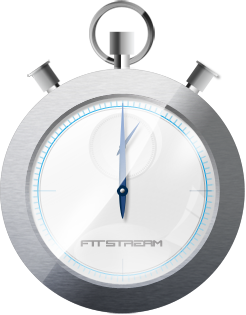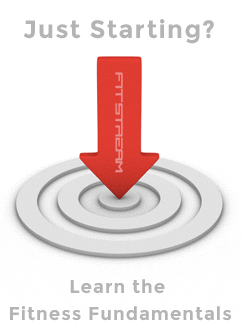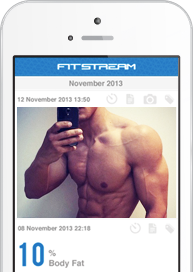
At one time or another we’ve all been in the situation of running through the motions with half-hearted workouts, making limited progress.
When you're in this state of mind it's important to quickly breathe some life back into your routine before the rot sets in.
This guide gives you a simple approach to ensure that you’re training efficiently and effectively.
The two are often confused, but being effective is about doing the right things, while being efficient is about doing the things in the right manner.
The symptoms
- Lack of motivation and no longer knowing why you're training
- Making slow progress or plateaued
- Easily distracted when working out
- Bored of training and making excuses not to go to the gym
Get started now!
We now have a wealth of information at our fingertips and there are thousands of voices, forums, websites, Facebook Pages, and YouTube Channels dedicated to Fitness. It’s easy to get wrapped up in it all or confused with conflicting opinions, with training suffering as a result. This is called 'paralysis by analysis' and wastes valuable time!
We actively encourage research, planning and learning, but not at the expense of getting started. Try things out, learn by experience in the gym and by research outside of it. You can’t wait for the perfect time to do something. That time will never come. So start now.
Set small, realistic goals
Aimless, freestyle fitness training is an approach that works for some (usually the highly motivated and experienced) but for many, it only leads to poor results, a lack of focus, and confusion. If you fall in the latter camp, you need goals.
Having lofty goals is great but unless you break them down into small, realistic goals the whole objective can be a bit overwhelming, which can lead to procrastination. Momentum helps fuel motivation. Achieving a subgoal and moving onto the next will build momentum.
Write down your goals and sub-goals, focus on each step at a time and nothing else. This will keep you focused and motivation high.
Vary your training
Limited progress and getting bored during workouts are common complaints and symptoms that your routine has become too stagnant. This is why it’s important to change your training regularly to keep your body on it’s toes by introducing new movements and skills.
Not only will this approach overcome plateaus and renew your interest but it will help to avoid injury from overtraining the same exercise over-and-over.
Remember that fitness is about more than just strength and endurance - try to train all ten of the fitness skills. Just look at the success of the CrossFit model which is built on ‘constantly varied, high-intensity, functional movement’.
 Create a positive mindset
Create a positive mindset
As with most things in life, how you approach your health and fitness will determine your success. Believe in yourself and study those that have achieved what you want. When you want something bad enough, you make it happen.
If you aren’t enjoying your workouts, it’s difficult to stay positive about them. Try creating a routine that you actually want to do. Fitness training isn’t bound to the barbell and treadmill. Try climbing, kayaking, ultimate frisbee, trail running, trampolining or mountain biking. There’s a world of activities that can make your workouts fun.
Train often enough
How often you workout is a critical factor to your progress. Too little, and you won’t meet goals and are likely to lose interest. Too much and you won’t be able to sustain the pace and you’ll just burn out.
Listen to the experts, follow a plan that's designed for your goals and listen to your body.
Stop making excuses
Excuses are friends of those that don’t want their goals bad enough, designed to protect the ego from their failures.
Take the most popular excuse - “I don’t have enough time to workout’. Choose to spend the time you have differently. Cut down on the facebooking, tv watching and game playing, and squeeze in a few hours of physical training each week. It’s worth the investment, and if you don’t make your health a priority now, in all likelihood you’ll be forced to make it a priority later (possibly when it’s too late).
There are people in better shape than you who work longer hours, earn less money, are older and are not as physically gifted as you are. Take responsibility for your goals. Research, learn, experiment and repeat. Discard what’s not working, and relentlessly pursue what is.
Avoid interruption
Interruption is the enemy of productivity and progress. Set some time aside for a concentrated workout and keep it focused and intense. Taking calls, updating statuses, and reading emails in the gym should be avoided.
Train intelligently
When it comes to working out, there’s the exercises that you could do, the exercises that you want to do, and the exercises that you have to do.
The exercises that you have to do is where you should begin. Figure out what you should be doing in order to achieve your goal. For example, if you’re 70 lbs overweight and looking to get lean, it’s pointless dragging yourself to the gym and doing swiss ball crunches for half your workout. You’d be better served with high intensity interval training.
There’s also many ways to skin a cat, and some are better than others. For example, if you want to be able to perform unassisted bodyweight pull-ups, there’s an efficient pull-up progression path that will get you there quicker than other routes might.
Determine what you should be doing and focus your energy on that.
Focus on the basics
A lot of people focus on the next big thing. They jump on to the next fitness craze and follow the latest trends. The human body hasn’t changed much in thousands of years, so try to focus on substance rather than fashion.
Ask questions
It’s easy to fall into a regular random routine and train how you think you should be training. It’s harder to break away and ask why. Here are some important questions to ask yourself -
Why are you training like this?
Do you include certain exercises or routines without knowing exactly why? Just because someone just told you to do it. Ask yourself why you’re bothering with _____. What benefit will it have for your health? If you better understand why you’re doing what you do, you can train more effectively.
What are you trying to achieve?
If you don’t know what you’re working towards, how do you know how to train?
Is this actually useful?
Do you find yourself spending valuable workout time on pointless exercises? If you’re 100lbs overweight then sit-ups aren’t a great use of your time.
What could you be doing instead?
What are you unable to do because you’re choosing to do this? If bicep curls means you can’t hit the pull-up bar maybe you should examine where you’ll get the most bang for your buck and swap out the exercise.
Is there a better way?
If you’re goal is a one-arm pull-up are you training in the right way, with the right exercise progressions? Do you research, seek out people who’ve done it before, learn from the mistakes and experiences of others.
Following these tips and asking these questions will focus your routine and ensure progress to your goals.










